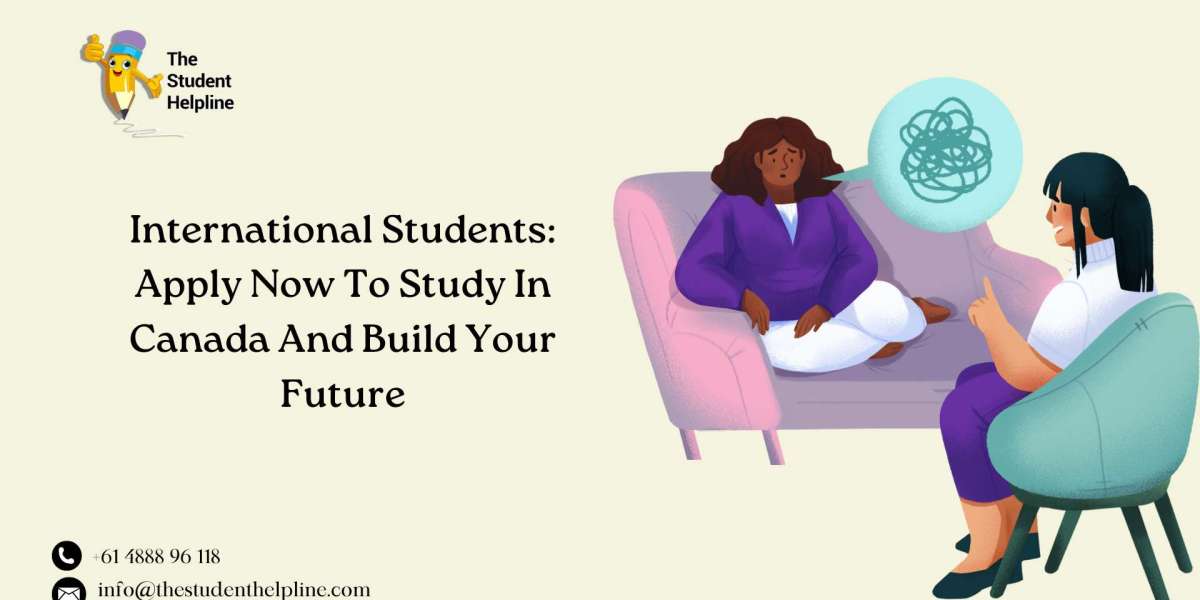Canada is one of the most sought-after destinations for international students due to its world-class education system, multicultural society, and promising career opportunities. While English language proficiency tests like IELTS are often a requirement for admission, there are ways to study in Canada without IELTS. Many Canadian universities and colleges now offer alternative pathways, making it easier for students to achieve their dreams of studying in Canada. This comprehensive guide explores the benefits of studying in Canada, how to apply without IELTS, the universities that accept alternative English proficiency proof, and why Canada is the perfect place to build your future.
Why Study in Canada?
Canada offers a unique combination of high-quality education, cultural diversity, and affordable living costs, making it one of the most appealing destinations for international students. Here’s why studying in Canada is a great choice:
1. Globally Recognized Education
Canadian universities and colleges are renowned for their academic excellence and innovative research opportunities. Degrees from Canada are recognized worldwide, opening doors to global career opportunities. Institutions such as the University of Toronto, McGill University, and the University of British Columbia rank among the top universities globally.
2. Multicultural and Inclusive Environment
Canada’s multicultural society makes it one of the most welcoming countries for international students. With people from diverse cultural backgrounds, students feel at home and can connect with peers from around the world.
3. Affordable Tuition and Living Costs
Compared to other study destinations like the United States, the UK, or Australia, Canada offers affordable tuition fees and living expenses. Additionally, scholarships and financial aid opportunities are available to support international students.
4. Work Opportunities
International students in Canada can work part-time during their studies and full-time during scheduled breaks. This allows students to gain valuable work experience and support themselves financially.
5. Pathways to Permanent Residency
Canada offers various immigration programs, such as the Post-Graduation Work Permit Program (PGWP) and Express Entry, that make it easier for international students to transition to permanent residency after graduation.
Studying in Canada Without IELTS
IELTS is often considered a hurdle for many students aspiring to study abroad. However, Canada has opened doors for students to study in Canada without IELTS by offering alternative English proficiency options.
1. English-Medium Education Background
Many Canadian universities and colleges accept students who have completed their previous education in English-medium institutions. If you’ve studied in an English-speaking environment, you may not need to submit IELTS scores. Instead, you can provide a Medium of Instruction (MOI) certificate from your previous school or university.
2. Alternative English Language Proficiency Tests
If you haven’t taken the IELTS, you can opt for other standardized tests to prove your English proficiency. Some commonly accepted alternatives include:
- TOEFL (Test of English as a Foreign Language)
- PTE (Pearson Test of English)
- CAEL (Canadian Academic English Language Assessment)
- Duolingo English Test
3. English Proficiency Waivers
Certain Canadian universities waive the English language proficiency requirement if you meet specific criteria, such as completing a foundation or pathway program. These programs are designed to improve your English skills and prepare you for university-level studies.
4. Conditional Admission Programs
Some universities in Canada offer conditional admission to students who don’t meet the language requirements initially. These students can enroll in English language courses before starting their degree program.
Top Universities in Canada That Accept Students Without IELTS
Several Canadian universities and colleges offer admission to international students without requiring IELTS, provided alternative conditions are met.
1. University of Saskatchewan
The University of Saskatchewan accepts students without IELTS if they can demonstrate English proficiency through other recognized tests or proof of education in English.
2. University of Regina
This university offers admission to students who have completed their previous education in English or who enroll in the English as a Second Language (ESL) program offered by the university.
3. Brock University
Brock University allows students to provide TOEFL, PTE, or other equivalent test scores. It also offers English-language pathway programs for students who don’t meet the English proficiency requirements.
4. Carleton University
Carleton University accepts students who have studied in English-medium institutions or completed an ESL program.
5. Memorial University of Newfoundland
Memorial University allows students to enroll in its Intensive English Program if they don’t meet the standard English language requirements.
6. Concordia University
Concordia University in Montreal accepts alternative test scores such as TOEFL and Duolingo. Students from English-medium schools may also qualify for an IELTS exemption.
How to Apply to Study in Canada Without IELTS
Applying to study in Canada without IELTS involves a few additional steps to meet alternative requirements. Here’s a step-by-step guide to streamline the process:
Step 1: Research Universities and Programs
Start by identifying universities and programs that allow applications without IELTS. Focus on institutions that accept alternative English proficiency tests or offer pathway programs.
Step 2: Check Eligibility Requirements
Carefully review the admission requirements of your chosen universities. Look for alternatives to IELTS, such as TOEFL scores, proof of English-medium education, or conditional admission programs.
Step 3: Gather Documents
Prepare all necessary documents, including:
- Academic transcripts and certificates
- Statement of Purpose (SOP)
- Medium of Instruction (MOI) certificate, if applicable
- Proof of alternative English proficiency test scores (e.g., TOEFL, PTE, Duolingo)
- Letters of recommendation
- Valid passport
Step 4: Submit Applications
Apply to your selected universities through their online portals or centralized application systems like ApplyAlberta or OUAC (Ontario Universities’ Application Centre).
Step 5: Wait for Acceptance Letters
After submitting your applications, universities will review your profile and send you acceptance letters if you meet their criteria.
Step 6: Apply for a Study Permit
Once you receive an offer of admission, apply for a study permit through the Immigration, Refugees and Citizenship Canada (IRCC) portal. Include your acceptance letter, proof of financial support, and other required documents.
Scholarships and Financial Aid
Studying abroad can be expensive, but Canada offers numerous scholarships and financial aid options to international students. Here are some popular scholarships to explore:
1. Government Scholarships
- Canada-ASEAN Scholarships
- Vanier Canada Graduate Scholarships
2. University-Specific Scholarships
- Lester B. Pearson International Scholarship (University of Toronto)
- York University International Student Scholarship
- UBC International Leader of Tomorrow Award
3. Private Scholarships
- Trudeau Foundation Scholarships
- Shastri Indo-Canadian Institute Scholarship
Living in Canada as an International Student
Canada offers a safe, welcoming environment with a high standard of living. Here’s what you can expect:
1. Accommodation
You can choose between on-campus housing or off-campus options like shared apartments. It’s best to arrange your accommodation before arriving in Canada.
2. Healthcare
Most provinces provide health insurance for international students. Check if your university includes health coverage in your tuition fees.
3. Part-Time Work Opportunities
With a student visa, you can work up to 20 hours per week during academic terms and full-time during holidays. This helps you gain work experience and manage your expenses.
4. Cultural Diversity
Canada’s inclusive culture ensures that international students feel welcome and supported. You’ll find student associations, cultural events, and community programs to help you settle in.
Post-Graduation Opportunities
Canada offers excellent opportunities for students to stay and work after graduation:
1. Post-Graduation Work Permit (PGWP)
After completing your studies, you can apply for a PGWP, which allows you to work in Canada for up to three years.
2. Pathways to Permanent Residency
Programs like the Canadian Experience Class under the Express Entry system provide a pathway to permanent residency for international graduates with Canadian work experience.
Conclusion
Studying in Canada is a life-changing experience, offering access to quality education, diverse cultures, and numerous career opportunities. Even if you don’t have an IELTS score, there are many pathways to achieve your dream of studying in Canada. By exploring alternative English proficiency options, applying to the right universities, and utilizing scholarship opportunities, you can make your dream a reality. So, take the first step toward a brighter future—apply now to study in Canada without IELTS and unlock endless possibilities.







